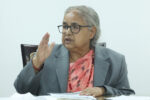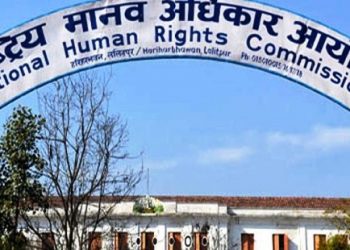Recurring disasters pose a great development challenge for all SAARC countries. Besides, the coronavirus pandemic has turned into a serious threat towards the life and livelihood of the poor and densely populated South Asia, home to one-fifth of the world’s population.
Notwithstanding SAARC Comprehensive Framework on Disaster Management in place, regional cooperation is apparently missing to minimize the probable loss and damage of lives, livelihood and assets in the South Asian region upholding the spirit of governance in disaster management.
Disaster governance is an emerging concept in the disaster research literature that is closely related to risk governance and environmental governance.
Disaster governance arrangements and challenges are shaped by forces such as globalization, world-system dynamics, social inequality, and socio-demographic trends.
Governance regimes are polycentric and multi-scale, show variation across the hazards cycle, and tend to lack integration and to be formulated in response to particular large-scale disaster events.
Recurring disasters pose a great development challenge for all SAARC countries. It’s evident that floods and landslides triggered by heavy monsoon rains have killed more than 220 people across South Asia over the past month in 2020.
Disaster governance is nested within and influenced by overarching societal governance systems. Although governance failures can occur in societies with stable governance systems, as the governmental response to Hurricane Katrina shows, poorly governed societies and weak states are almost certain to exhibit deficiencies in disaster governance.
With its significant experience in disaster risk reduction (DRR), democratic governance, and development, UNDP is taking forward the practical and conceptual work on DRR governance and mainstreaming. Natural hazards on its own do not result in disaster.
Rather, it is the vulnerability of populations in countries that has a direct bearing on levels of disaster. Supportive governance is necessary to ensure coping capacities in societies.
Equally critical is the need for processes institutions with sufficient managerial and coordination capacity to and manage and integrate the efforts of relevant sectors and account for vulnerable and poor communities.
South Asia with one-fifth of the world population is an extreme disaster-prone region. Over the past forty years, South Asia faced as many as 1,333 disasters that killed 980,000 people, affected 2.4 billion lives and damaged assets worth $105 billion.
South Asia has been acknowledged to be a region in crisis because of natural calamities. South Asia with its population of about 1.5 billion is one of the regions in the world highly exposed to a variety of natural as well as human-induced hazards.
Countries in the SAARC region experienced a number of major disasters in the last one and a half decades, which took the lives of about half a million people and caused huge economic losses and massive destruction in the countries’ economy.
Among others, the major reasons for the increasing vulnerability of people in the region are largely related to the demographic conditions, rapid technological and socioeconomic changes, fast-expanding urbanization and development within a high-risk environment. COVID pandemic has put the South Asian countries in danger.
Civil society, including volunteers and community-based organizations, the scientific community, and the private sector are vital stakeholders in supporting the implementation of disaster risk reduction at all levels.
Until then the poor and densely populated South Asian nations will have to learn to live with the virus. This means economies may continue to suffer as efforts to nurse their ailing health may not yield desired results as long as the virus remains uncontained.
In such a situation, every mistake may make the fight – be it for containing the virus or for economic recovery – hard and force the countries to pay heavily.
Recurring disasters pose a great development challenge for all SAARC countries. It’s evident that floods and landslides triggered by heavy monsoon rains have killed more than 220 people across South Asia over the past month in 2020.
More than one million people have been marooned in Nepal, Bangladesh and India and hundreds of thousands have fled their homes for higher ground. In that context, a SAARC Comprehensive Framework on Disaster Management and Disaster Prevention is articulated in 2005.
The SAARC Centre for Disaster Management and Preparedness, SAARC Coastal Zone Management Centre and SAARC Meteorological Research Centre have been entrusted with the assigned tasks to implement the Framework in the context of regional cooperation within the mandate of the respective Regional Centres.
The framework clearly instructs that implementation of and follow-up to the strategic goals and priorities for action should be addressed by different stakeholders in a multi-sectoral approach, including the development sector.
Better coordination/integration of the different sectoral departments would be encouraged and institutionalized to render the services aiming at attaining governance for environmental protection.
The Members States and regional organizations will integrate disaster risk reduction considerations into their sustainable development policy, planning and programming at all levels.
Civil society, including volunteers and community-based organizations, the scientific community, and the private sector are vital stakeholders in supporting the implementation of disaster risk reduction at all levels.
As per SAARC Comprehensive Framework on Disaster Management, all the Member States will be encouraged to apply a holistic approach and maintain consistency in programming and building multi-stakeholder partnerships at all levels, as appropriate, to contribute to the implementation of this Framework for Action.
Member States and other actors are encouraged to promote the strengthening or establishment of volunteer corps, which can be made available during disasters.
Member countries shall develop their plan of action for implementation of this framework while the regional cooperation components of this framework shall be implemented by the concerned regional mechanisms.
Despite the fact, SAARC has apparently failed to emerge as an effective regional body even over 27 years after its inception.
Even it could not play an effective role in helping nations enforce a comprehensive framework on Disaster Management due to lack of intergovernmental cooperation.
Efforts to be directed to find out a possible way forward to ensure the accountability and efficiency of the local government managing natural resources and environment.
It is important to launch community awareness and information dissemination to have the stakeholders involved and concerned.
These campaigns would also allow understanding what the perception and views of the public on climate change and adaptation are.
Better coordination/integration of the different sectoral departments would be encouraged and institutionalized to render the services aiming at attaining governance for environmental protection.
Efforts to be directed to find out a possible way forward to ensure the accountability and efficiency of the local government managing natural resources and environment.
The introduction of public policies to encourage and support the adaptation of individuals and the private sector, particularly through the establishment of fiscal incentives or subsidies, would be used as an option.
Therefore, a broad-based consensus among various stakeholders to implement the disaster management related act, policy with necessary modifications will be crucial- with the highest political will, as a prerequisite.
Following actions, I believe will help bring about a sustainable benchmark to ensure disaster governance in South Asian countries.
Creating a vision that inspires action
Setting goals and targets for direction
Policy coordination for efficiency
Policy instruments and incentives that stimulate action
Integration between government and other knowledge-based institutions
Involvement of local administration
Capacity-building for effective implementation
Empowerment for equity
Ensuring the right to information for timely action
Participation in ownership and enforceability
Education and awareness for consensus building and participation
We should bear in mind that, NGOs and other civil society groups are not only stakeholders in governance, but also a driving force behind greater international cooperation through the active mobilization of public support for international agreements.
Due to their critical role in service delivery and implementation, civil society organizations have long been recognized as “partners” of the UN system, especially in negotiations for resource mobilization to Disaster Management.
Civil society should play a major role in the following areas to streamline disaster governance:
Information collection and dissemination;
Policy development consultation;
Policy implementation;
Assessment and monitoring;
Advocacy for environmental justice.
I appreciate the Prime Minister of Bangladesh who recently attaches the importance of accelerating regional cooperation for better disaster management.
While addressing the 4th the session of the Regional Consultative Group (RCG) on Humanitarian Civil-Military Coordination for Asia and the Pacific held in January 2019, Sheikh Hasina, the Prime Minister of Bangladesh stressed the need for collaboration and cooperation among neighboring countries to minimize damages caused by natural disasters.
Above all, the United Nations system, including international finance and development agencies, and all intergovernmental organizations and forums should, in consultation with non-governmental organizations complement the efforts of SAARC to accelerate the enforcement of legislation pertaining to disaster management for the benefit of the people affected in South Asia due to recurrent disaster events in the wake of climate change.
(Dr. Mohammad Tarikul Islam is an Associate Professor of Government and Politics at Jahangirnagar University in Bangladesh)









Comment